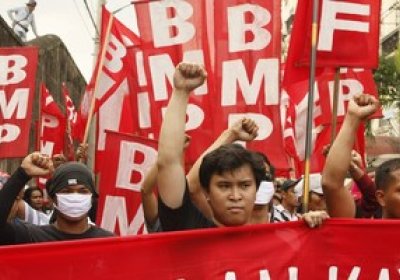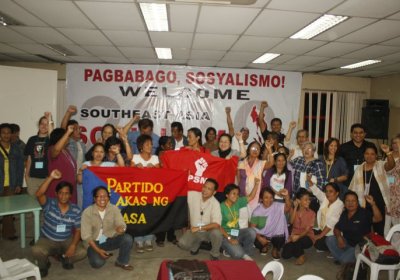Manila
The desperate millions than comprise Manila's urban poor settlers were the worst hit by the recent floods but the government has scapegoated them for the ongoing disaster and threatened to "blast away" the shanty homes of 100,000.
Australian mining companies, already ravaging the traditional land of Indigenous peoples in the Philippines, are now pushing for ratification of a military agreement that would allow Australian troops to enter the Philippines for "combined training, exercises, or other activities mutually approved by the Parties". Protests broke out in Manila on June 6, 2012 as the Philippines Senate was deliberating the ratification of this controversial 'visiting forces' military pact with the Australian government, signed by the disgraced former President Gloria Arroyo in 2007.
The streets of Ayala, Manila, were taken over by about 5000 people on November 25 in a protest against the growing use of contract labour.
A successful 2010 Southeast Asia Socialism and Feminism conference was held at the University of the Philippines (UP) in Metro Manila over November 27 and 28.
- Previous page
- Page 2










